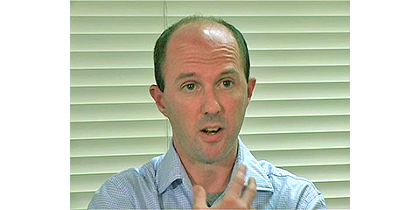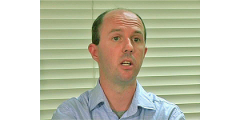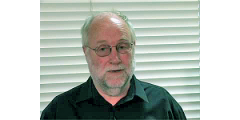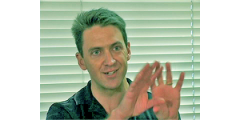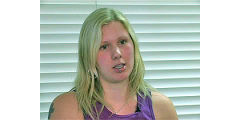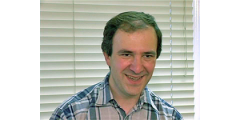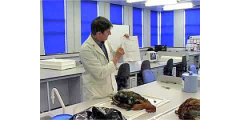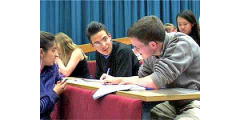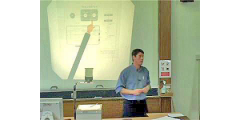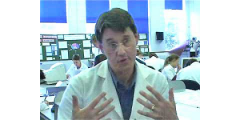Purposes of student-led seminars: development of transferable skills
June 26, 2007
Video >> Kate: “Hi Nick, thanks very much for coming over from the School of History.” Nick Thomas, History: “That’s OK.” Kate: “I wanted to ask you about seminars and seminar teaching. What is it you actually want your students to gain from participating in seminars?” Nick: “A number of different skills. We look to …
Setting up seminars for productive learning
Video >> Kate: “How to help students effectively prepare for seminars bearing in mind that there’s this wide set of skills which we want them to develop?” Nick Thomas, History: “I think it depends on the format, and I think it depends on how the seminars are done. Certainly the seminars that I run, there …
Feedback on exams: 1 to 1 tutorials in Geography
Video >> Bob Dugdale, Geography: “Normally we give them their numeric marks as soon as we can after the exams. There’s a prepared sheet for each module which gives them the actual exam questions they answered and the mark they got for that, so by the end of each Semester they – or shortly after …
Involving students in large groups: ideas for using interactive handsets
Video >> Richard Field, Geography: “With second year students there’s an element of confidence as well about whether they feel very happy discussing research front articles in front of a group and kind of criticising. And there was a lot of listening – not so much talking – done by the students. “So another thing …
Learning from lectures: a dyslexic student’s view
June 18, 2007
Video >> Kate: “Are there any teaching and learning strategies that some of your tutors may adopt that are particularly supportive of your study?” Annie Evans, student, Archaeology: “The thing I’ve found really useful is we have one lecturer who just puts everything on WebCT (now Moodle), like seminar reading lists…absolutely everything, journals…and then its …
Podcasting Maths lectures: how and why?
Video >> Kate: “So I understand that you’ve been experimenting with the use of audio podcasting; tell me how that’s gone.” Joel Feinstein, Mathematical Sciences: “That’s right, yes. The University was kind enough to lend me a professional quality mp3 recorder which I’ve been using to make audio podcasts, audio recordings of all of my …
Learning through labs and practical work
February 21, 2007
Video >> Kate: “In a subject such as yours, what do you think are the main purposes of running practical classes for your students?” Martin: “The main purpose in this case is to reinforce the material that we’ve dealt with in the lecture. The lectures are good for describing concepts and explaining principles, but in …
Questions and activities in lectures
Video >> Kate: “Can I ask you about asking the students questions in lectures, why do you do it and what do you think are the benefits?” Ed: “Probably because the attention span of the average person is in the order of minutes. You have got to do anything you can to get them to …
Structure, pace and activities in lectures
Video >> Extract from a lecture Ed: “I just want to do a quick reminder of what we talked about this morning and how things actually get sorted and the basic problems arise, or at least legislation about air pollution has arisen out of a sequence of events over obviously several hundred years as we dealt …
Handouts for learning in lectures
January 31, 2007
Video >> Kate: “In the lecture, you were using a number of different audio-visual and other teaching resources. What do you use and why do you use those particular kinds of resources?” Martin: “Science courses are very content-laden. In some ways that’s a strength but in some ways it’s a problem. There’s often a lot of material …

